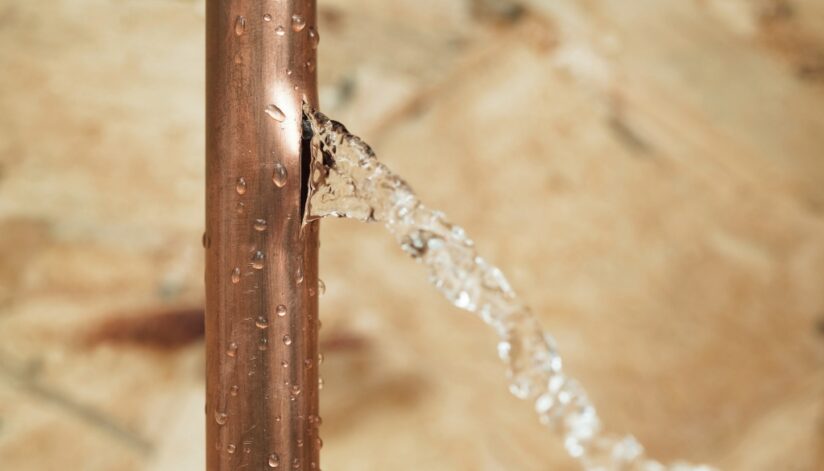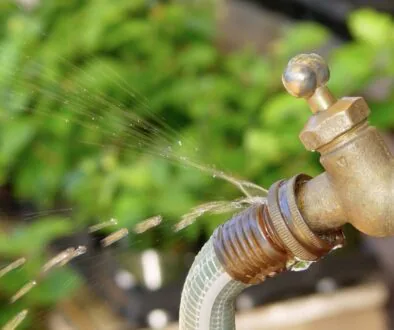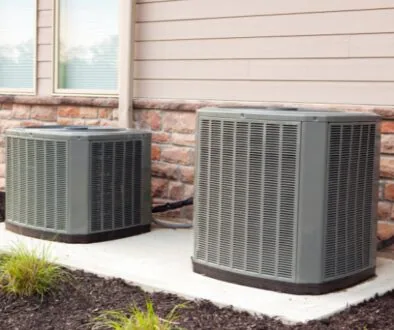Common Plumbing Problems During Winter And How To Prevent Them
Winter in La Crosse, Wisconsin, brings its fair share of challenges, from icy roads to heavy snowfall. But the cold weather can also wreak havoc on your home’s plumbing system. Burst pipes, clogged drains, and malfunctioning water heaters are just a few of the issues homeowners might encounter during the colder months. Fortunately, there are steps you can take to avoid these common winter plumbing problems and keep your home running smoothly all season long.
In this blog post, the experts at Niebuhr will walk you through the most common winter plumbing issues and share essential tips on how to prevent them.
1. Frozen Pipes
Frozen pipes are one of the most common plumbing problems homeowners face during the winter. When the temperature drops, water inside your pipes can freeze and expand, causing the pipes to crack or burst. This can lead to significant water damage, costly repairs, and even mold growth if not addressed quickly.
Prevention Tips:
- Insulate Exposed Pipes: Pipes located in unheated areas like basements, crawl spaces, garages, and attics are particularly vulnerable to freezing. Use foam pipe insulation or heating tape to protect these exposed pipes.
- Keep the Heat On: Even if you’re going on vacation, keep your thermostat set to at least 55°F to prevent the pipes from freezing while you’re away.
- Let Faucets Drip: On extremely cold nights, allow faucets connected to vulnerable pipes to drip slightly. This can relieve pressure in the pipes and help prevent freezing.
- Seal Gaps and Cracks: Inspect your home for any cracks or openings around windows, doors, and where pipes enter the house. Seal these areas with caulking or weather stripping to keep cold air out.
If a pipe does freeze, shut off the water supply to that section and use a hair dryer or heating pad to thaw it out gradually. Avoid using an open flame, as this can damage the pipe or start a fire.
2. Burst Pipes
Burst pipes are a direct result of freezing. When water inside the pipes freezes, it expands, creating pressure that can cause the pipes to crack or burst. This leads to leaks, water damage, and, in severe cases, flooding.
Prevention Tips:
- Insulate Outdoor Faucets: Disconnect garden hoses and install faucet covers over outdoor spigots to protect them from freezing temperatures.
- Shut Off and Drain Outdoor Water Lines: If your home has a shutoff valve for outdoor water lines, turn it off and drain the remaining water from the pipes before winter sets in.
- Consider Pipe Heating Cables: Pipe heating cables can be installed along vulnerable pipes to keep them warm during the winter. These cables are thermostatically controlled, turning on when temperatures drop to prevent freezing.
If you experience a burst pipe, immediately shut off the main water supply to your home and contact a plumber for emergency repairs.
3. Water Heater Issues
As temperatures drop, your water heater has to work harder to heat the incoming cold water, which can lead to issues like insufficient hot water, strange noises, or complete failure. Cold weather can also cause sediment buildup in the tank, reducing the heater’s efficiency and lifespan.
Prevention Tips:
- Check the Temperature Setting: Make sure your water heater is set to the manufacturer’s recommended temperature, usually around 120°F. Setting it too high can lead to overheating and other problems.
- Insulate the Water Heater Tank: Installing an insulating blanket around the tank can help reduce heat loss and save energy, especially if your water heater is located in an unheated space.
If your water heater is more than 10 years old and struggling to keep up, it may be time to consider replacing it with a new, energy-efficient model.
4. Clogged Drains
During the winter, your kitchen drains can become clogged with grease, food scraps, and other debris as you prepare hearty, warm meals for family gatherings. Additionally, the cold weather can cause fats and oils to solidify faster, leading to more frequent blockages.
Prevention Tips:
- Never Pour Grease Down the Drain: Instead of pouring grease, fats, or oils down the drain, let them cool and dispose of them in the trash.
- Use Drain Strainers: Install strainers in your kitchen and bathroom sinks to catch food particles, hair, and other debris before they enter the drain.
- Schedule Regular Drain Cleaning: Preventive maintenance can help keep your drains flowing freely all winter. Consider scheduling a professional drain cleaning service to remove any buildup before it becomes a problem.
If your sink is draining slowly, avoid using chemical drain cleaners, which can damage your pipes. Instead, try using a plunger or a mixture of baking soda and vinegar to clear minor clogs.
5. Sump Pump Failure
Winter can bring unexpected thaws, rain, and snowmelt that can lead to basement flooding if your sump pump isn’t working correctly. Freezing temperatures can also cause the pump’s discharge line to freeze, rendering the pump ineffective.
Prevention Tips:
- Check Your Sump Pump Regularly: Test your sump pump to ensure it’s working properly before winter. Pour a bucket of water into the sump pit to see if the pump activates and drains the water.
- Inspect the Discharge Line: Make sure the discharge line is clear of any obstructions and is directed away from your home’s foundation. Insulate the line to prevent it from freezing.
- Install a Battery Backup: In the event of a power outage, a battery backup can keep your sump pump running and help prevent flooding.
Conclusion
Winter weather in La Crosse can be harsh, but with a little preparation, you can avoid many common plumbing problems. From insulating pipes to scheduling a water heater tune-up, taking preventive measures can help you keep your home’s plumbing system running smoothly and efficiently all season long.
At Niebuhr Plumbing, Heating, and Air Conditioning, we’re dedicated to helping homeowners in the Coulee Region stay comfortable and worry-free during the winter months. Whether you need assistance with winterizing your pipes or a routine inspection, our team of experts is here to help. Contact us today at (608) 782-1700 to schedule an appointment or learn more about how we can protect your home from winter plumbing issues.




